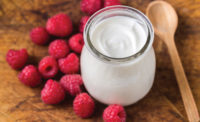A View from Oceania
Contributed by Simon Tucker The Doha Development Agenda agriculture negotiations represent the best available opportunity for meaningful market orientated reform of global agriculture. Experience suggests that the preparation, negotiation and implementation of a multinational round takes at least 15 years meaning that efforts should be redoubled to make sure the Doha outcome achieves the greatest possible reform.
The alternative is continued distortions in global agriculture that discriminate against developing countries and other competitive agriculture producers. Failure to make progress will also lead to greater use of a patchwork of free trade agreements. These can make welcome incremental advances in market access but tend to carve out sensitive sectors such as dairy and also fail to deal with issues such as export subsidies and market distorting domestic support.
To be consistent with the Doha mandate it is essential that the outcome for agriculture from the Doha Round be built around three key achievements:
• Agreement to quickly eliminate export subsidies-certainly in no longer than five years.
• Significant cuts to domestic support, entailing genuine reductions in current expenditure.
• Significant cuts in market access barriers which lead to new trade across the board through a combination of tariff cuts and quota increases.
These are all particularly important outcomes for the global dairy industry. Also of significance for dairy are tighter disciplines in food aid to stop donations being used for surplus disposal and displacing commercial trade, and, ensuring that geographical indications do not become yet another distortion to world dairy trade.
At the time of writing it appears that the agriculture negotiations, and the Round, are in danger of stalling. Lack of progress now will make it difficult to achieve a satisfactory outcome by the end of 2006, the realistic deadline for the negotiations. To prevent this happening we need political will on all sides to break existing impasses. Specifically we need:
• Stronger leadership from the U.S. and the European Union, and greater flexibility on market access from countries employ high tariffs on commodities, including dairy.
• A willingness in the U.S. to follow the lead of the EU and agree to specific reform in the area of domestic support.
• Agreement to translate the broad commitment to end agricultural export subsidies into a specific and aggressive timeframe for elimination within a few short years.
• Agreement across the membership that special and differential treatment for developing countries is an intrinsic part of the outcome of the Doha Round. At the same time leading developing countries need to acknowledge that they too must be willing to agree to their own commitments to reform.
• All of this places a lot of onus on wealthy countries such as the EU, US, Japan and Canada to be willing to cut market access barriers and domestic subsidy practices. This simply reflects the fact that these countries are most guilty of distorting world agricultural trade; it is time for them to show leadership in the quest to place international agriculture on a more market-orientated basis.
It is somewhat encouraging to see the views of trade ministers converging in Dalian recently around the principles that high tariffs need to be cut more, and the idea that no agriculture tariffs should be able to exist at a level higher than 100%.
There is still time for all sides to work together for a successful Ministerial Meeting in Hong Kong in December of this year, and to use that success to pave the way for s strong trade-liberalising outcome from the agriculture negotiations by the end of 2006.
Simon Tucker is v.p., government relations and trade, North America for Fonterra Cooperative Group Ltd.
A Perspetive from the EU Dairy Industry
Contributed by Peter Dawson and Philippe Jachnik The European Union's dairy processing industry accepts that in the long-term government support for agriculture can no longer be trade-distorting. The issue facing the industry is the process by which it can adapt to the new environment created by the elimination of trade-distorting subsidies. The EU industry is confident that it can successfully make this transition
to become a globally competitive industry.
The general recognition of the benefits of free and fair trade is driving forward the process of trade liberalisation in agriculture. The EU dairy industry is willing to take on the challenges that this will create.
The reform of the Common Agricultural Policy will do much to bring the EU dairy regime into line with the requirements of any future WTO agreement. The focus of EU's dairy policy will be switched from supporting market prices to direct payments to producers that will be entirely decoupled from production. These direct payments, because they are minimally trade distorting, will be categorised under the Green Box and will not be subject to reduction commitments.
As part of the shift away from supporting market prices as laid down in the CAP-Reform 2003, EU internal prices will come closer to world market levels. As a result, at the end of the CAP reform implementation period, the majority of the existing expenditure on supporting market prices will be brought to an end.
Further adjustments to the dairy sector CAP may still be necessary, but if a WTO agreement does produce a sustained rise in world prices (as is projected by the loudest advocates
of trade liberalisation) then these further changes may
be minimal.
Any new WTO agreement can be accepted only when the implementation period is long enough to allow the industry to adapt. An overnight elimination of export refunds, could be disruptive. We are hopeful that those pushing for rapid elimination of export refunds are only seeking leverage for negotiations. Rapid elimination would create an unsustainable spike in world prices to the detriment of food importing countries, and this could lead to a price collapse. It is in everyone's interest to avoid such a cycle and to seek a timely conclusion to the negotiations.
The big issue, both for all those in the world market is whether the EU dairy sector can be competitive in the environment created by a WTO agreement. In Europe, there is a general trust that it can be so.
On the processing side, the EU industry unquestionably has companies with the scale of operation, technical expertise, operating efficiency, and the quality and diversity of products to compete in an open market.
The CAP-Reform 2003 has set the conditions for an adaptation of the dairy farming sector. On the one hand, it is agreed that dairy farming is more than just producing milk. Through the decoupled direct payments farmers will be paid for their contribution to the social and environmental developments in the rural areas. On the other hand, by strongly reducing the market support, the farmers are stimulated to increase their competitiveness. It is generally agreed that the process of adaptation will not be painless for all, but together with highly efficient and strongly market driven milk processing sector, farmers will succeed and help contribute to the EU's involvement in world markets.
In the long term the EU industry is confident it can meet the challenges arising from liberalization. There are issues of adaptation that need to be addressed, but the latent potential of the EU industry means that they can be overcome. The political process by which trade is liberalized creates its own challenges. In the end all parties would obtain the greatest benefit by focusing on what is possible, rather than making declarations of principle.
However agreement is reached, a stong EU dairy industry is prepared to play a constructive and positive role in the WTO process. Hopefully, dairy industries around the world are prepared to do likewise.
Peter Dawson, Policy Director of Dairy UK, has worked for the trade associations representing the interests of the UK dairy industry for more than 15 years. Dawson is also Rapporteur of the EDA (European Dairy Association) WTO Group. Dairy UK which covers processor, producer co-op and producer interests.
Philippe Jachnik served as president of the International Dairy Federation from September 2000 until November 2004. A French national, he has been in charge of professional and international affairs at ATLA (Association of French Dairy Processors) in Paris since its founding in 1993.

